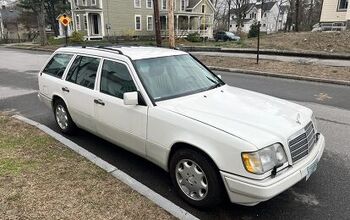Wisconsin Appeals Court Clarifies Dashcam Evidence Rules
The Wisconsin Court of Appeals on Wednesday gave its first ruling on how dashcam evidence would be treated at the appellate level. A three-judge panel decided that the proper legal standard when evaluating a video is to overturn a trial judge’s decision only it is “clearly erroneous.”
The context was provided by the November 4, 2009 arrest of Jeffrey D. Walli in Sheboygan. The court was asked to determine whether Sheboygan Police Officer Brandon Munnik had a valid reason for pulling Walli over in the first place. Munnik claimed that around 11:22pm Walli’s car nearly sideswiped him, so he flipped on his emergency lights, which triggered his dashboard-mounted video camera, and gave chase. Munnik testified that the resulting video showed Walli’s car over the center line and was a legitimate traffic violation. Walli’s attorney disagreed with that take.
“I think [the video] shows two vehicles coming toward each other, um, both on their side of the center line, they’re both close to the center line, and that there is no showing of Mr. Walli’s vehicle crossing the center line,” the lawyer argued.
The video showed the police car took no evasive action, but a judge did not buy the defense counsel’s argument.
“I believe at this point that the officer did see the vehicle cross the centerline, and that that’s a violation of the motor vehicle code, and would give reasonable suspicion to stop, so the court would deny the motion [to suppress the evidence],” Sheboygan County Judge Timothy M. Van Akkeren ruled.
The appeals court was asked to review the decision and determine whether based on the facts at hand the officer had reasonable suspicion that a crime was being committed. The panel decided it should assume the trial judge has a better handle on the facts of the case.
“With the near ubiquitousness of squad car video cameras, surveillance cameras and traffic cameras, appellate courts will be deciding more and more cases where some of the evidence is preserved on recordings,” Anderson wrote. “Where the underlying facts are in dispute, the trial court resolves that dispute by exercising its fact-finding function, and its findings are subject to the clearly erroneous standard of review.”
In other states, appellate courts have adopted a “de novo” form of review of video evidence that does not give the trial judge’s impression any extra weight. The Wisconsin judges were not persuaded by this approach.
“Here, the trial court’s ruling involved not simply the review of the video, the court also evaluated the credibility of the officer and weighed all of the evidence,” Anderson wrote. “In conference, we viewed the video recording from Munnik’s squad car and conclude that the trial court’s finding that Walli crossed the center line is not clearly erroneous.”
A copy of the decision is available in a 65k PDF file at the source link below.
Wisconsin v. Walli (Court of Appeals, State of Wisconsin, 5/11/2011)
[Courtesy: Thenewspaper.com]
More by The Newspaper
Latest Car Reviews
Read moreLatest Product Reviews
Read moreRecent Comments
- Lorenzo Yes, they can recover from the Ghosn-led corporate types who cheapened vehicles in the worst ways, including quality control. In the early to mid-1990s Nissan had efficient engines, and reliable drivetrains in well-assembled, fairly durable vehicles. They can do it again, but the Japanese government will have to help Nissan extricate itself from the "Alliance". It's too bad Japan didn't have a George Washington to warn about entangling alliances!
- Slavuta Nissan + profitability = cheap crap
- ToolGuy Why would they change the grille?
- Oberkanone Nissan proved it can skillfully put new frosting on an old cake with Frontier and Z. Yet, Nissan dealers are so broken they are not good at selling the Frontier. Z production is so minimal I've yet to see one. Could Nissan boost sales? Sure. I've heard Nissan plans to regain share at the low end of the market. Kicks, Versa and lower priced trims of their mainstream SUV's. I just don't see dealerships being motivated to support this effort. Nissan is just about as exciting and compelling as a CVT.
- ToolGuy Anyone who knows, is this the (preliminary) work of the Ford Skunk Works?

































Comments
Join the conversation
This looks like a pretty standard appellate decision on a factual issue. Appellate courts do not get in the business of re-weighing the evidence considered by a trial court, whether a judge or a jury. Assuming there's some evidence that supports the lower court's decision, that's the end of it, as far as the appeal is concerned. The officer's testimony was evidence. To the extent that the video impeached the officer's testimony (i.e. didn't show the defendant's car crossing the center line), the usual and typical function of any trial court is to resolve those conflicts. The basic principle at work here is not some sort of bias, but simply the fact that justice is slow and expensive enough without re-trying cases on appeal. Appeals are about (1) was the law correctly applied to the facts, (2) was evidence properly admitted or excluded from consideration and (3) is there some evidence that supports the factual determination of the trial court.
See, what happens is, if the defendant's attorney questions the judge's decision, he can request that the instant replay be used. However, if the judge determines that the dashcam didn't show him to be 'clearly erroneous' then the defense loses a time out and play is resumed.